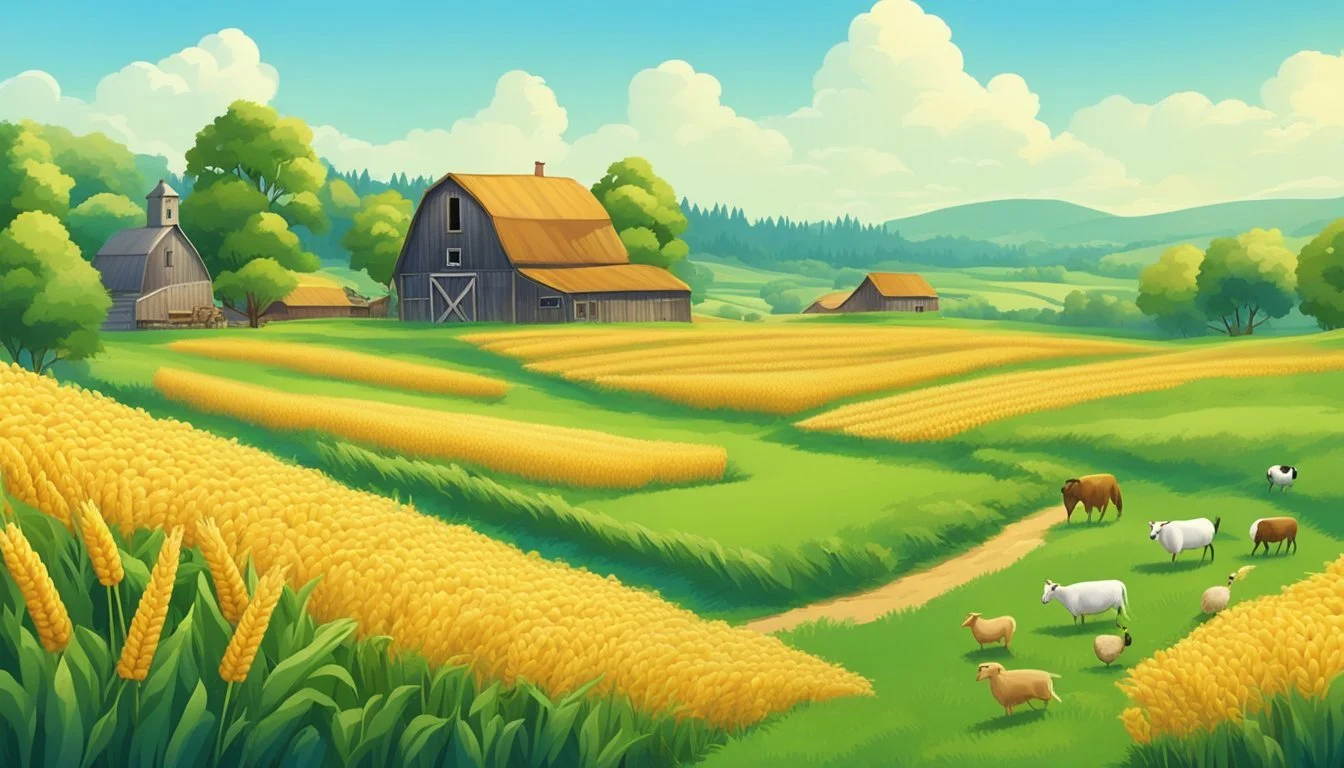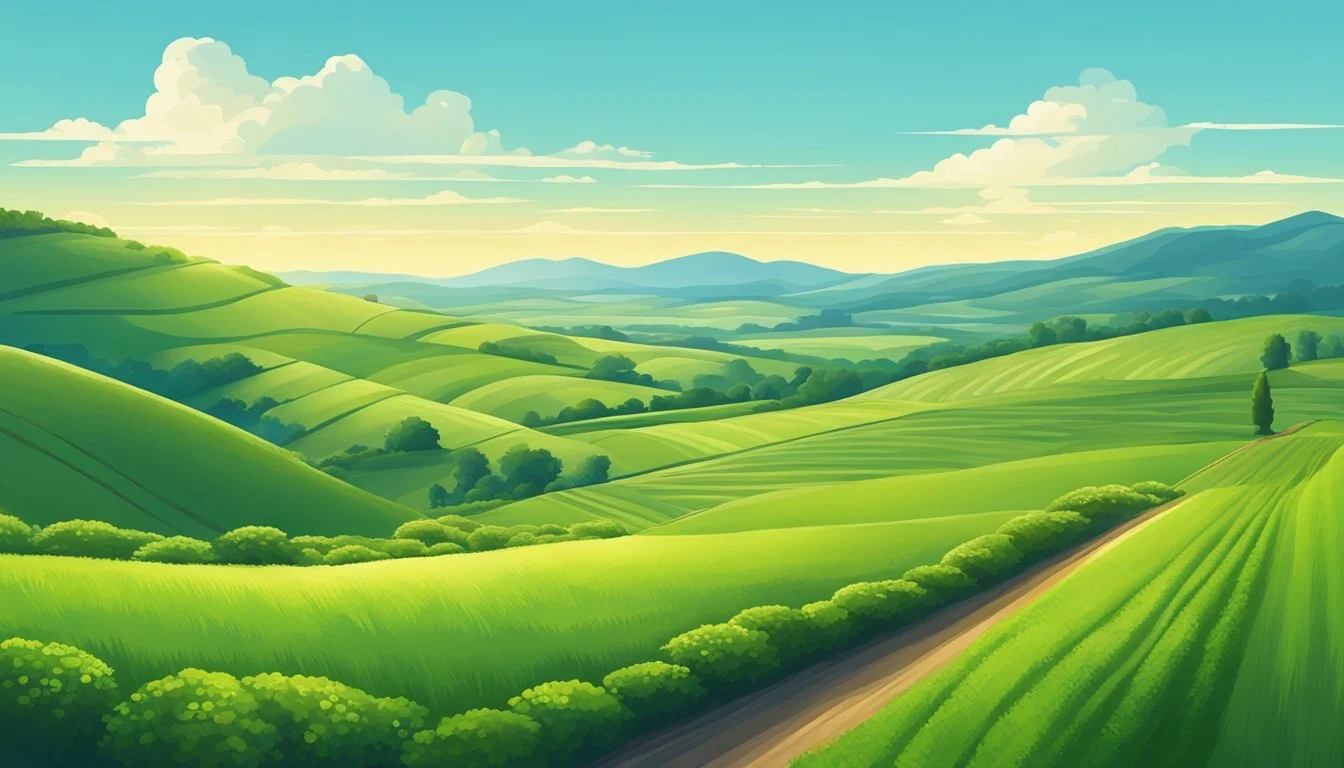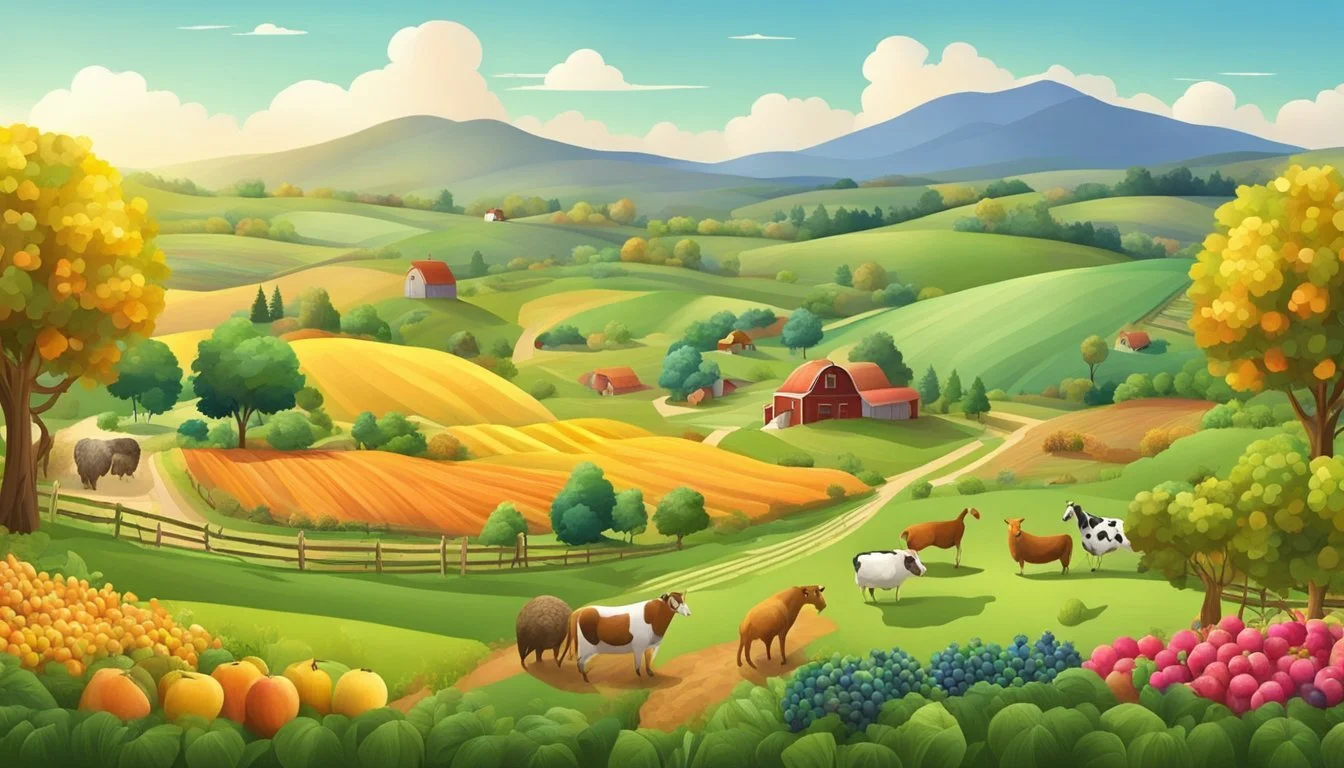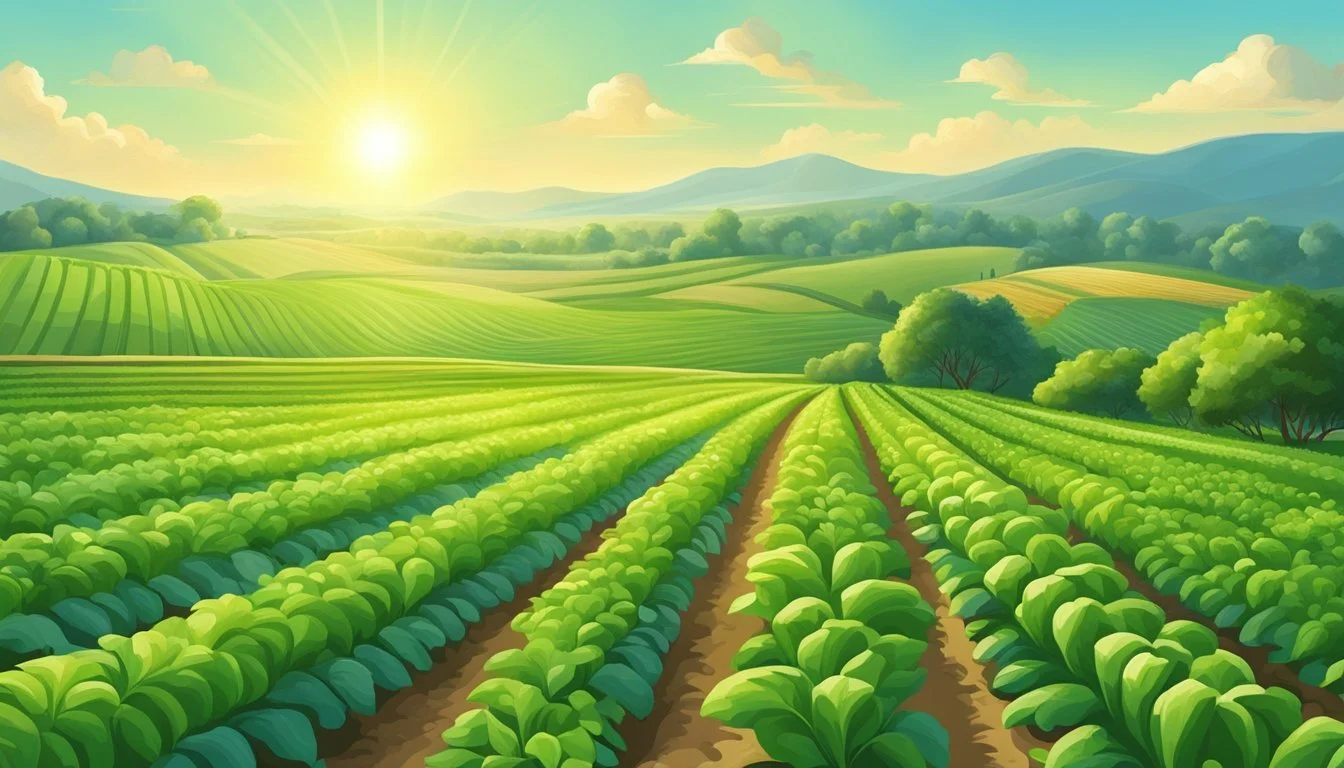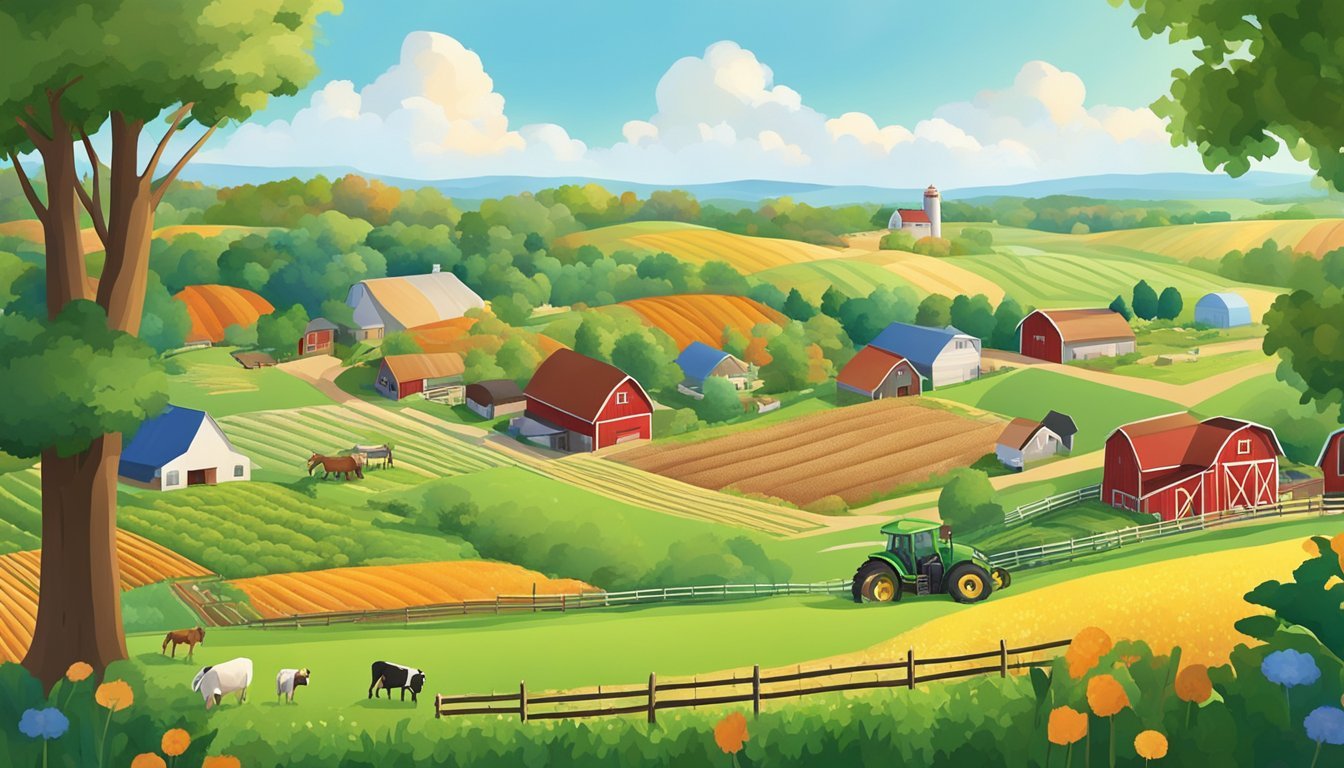9 Films Analyzing the Impact of the Agricultural Revolution
Cinematic Explorations of Farming's Historical Shift
The Agricultural Revolution marked a pivotal moment in human history, transforming societies from nomadic hunter-gatherer groups into settled agricultural communities. This shift fundamentally altered human relationships with the land, food production, and social structures.
Films exploring the Agricultural Revolution offer unique perspectives on this transformative period. These cinematic analyses provide viewers with visual and narrative insights into the complex impacts of agriculture's rise on human civilization, from technological innovations to societal changes. Through a blend of historical recreation, expert commentary, and artistic interpretation, such films can illuminate both the benefits and challenges that arose from humanity's transition to farming-based cultures.
1) 'The Earth Wins' directed by Jerry Grayson
'The Earth Wins' is a visually stunning documentary directed by Jerry Grayson. Released in 2013, the film offers a unique aerial perspective of our planet.
Shot over seven years across four continents, it explores the intricate relationship between humans and the environment. The documentary showcases Earth's diverse landscapes and ecosystems.
Grayson's film emphasizes the impact of human actions on the planet and its inhabitants. It presents a thought-provoking look at our interdependence with nature.
The soundtrack features music from well-known artists like Coldplay and New Order, as well as indigenous musicians. This enhances the viewer's experience and emotional connection to the imagery.
As the first Australian-produced IMAX film in a decade, 'The Earth Wins' marked a significant achievement in documentary filmmaking. Its breathtaking aerial footage provides a fresh perspective on environmental issues.
The film invites viewers to reflect on the delicate balance between human progress and environmental preservation. It serves as a powerful visual essay on the importance of sustainable practices.
2) 'Our Daily Bread' by Nikolaus Geyrhalter
Nikolaus Geyrhalter's 2005 documentary 'Our Daily Bread' offers a stark look at industrial food production across Europe. The film eschews narration and interviews, relying solely on visuals and ambient sound to convey its message.
Geyrhalter's camera captures the mechanized processes of modern agriculture and food processing. Conveyor belts, massive machines, and sterile environments dominate the landscape.
The film presents a series of carefully composed shots, showcasing the scale and efficiency of industrial farming. From vast greenhouses to automated slaughterhouses, it reveals the often unseen aspects of food production.
'Our Daily Bread' raises questions about the relationship between humans, animals, and technology in the food industry. It presents these complex issues without commentary, allowing viewers to form their own conclusions.
The documentary's clinical approach and striking imagery create a powerful viewing experience. It prompts reflection on the origins of our food and the methods used to produce it on a massive scale.
3) 'Food, Inc.' directed by Robert Kenner
'Food, Inc.' is a 2008 documentary that examines the industrial food production system in the United States. Directed by Robert Kenner, the film features insights from authors Michael Pollan and Eric Schlosser.
The documentary explores how large corporations control food production, often prioritizing profits over consumer health, worker safety, and environmental concerns. It sheds light on the practices of agribusiness and their impact on food quality.
'Food, Inc.' investigates various aspects of the food industry, including meat production, grain farming, and food processing. The film argues that industrial methods are not only inhumane but also economically unsustainable.
Kenner's work received critical acclaim and earned several award nominations. It sparked discussions about food sourcing, agricultural practices, and the need for transparency in the food industry.
The documentary uses interviews, graphics, and footage to illustrate its points. It aims to educate viewers about the origins of their food and the implications of current production methods.
4) 'The Biggest Little Farm' by John Chester
'The Biggest Little Farm' documents John and Molly Chester's eight-year journey to establish a sustainable farm. The couple left their urban life in Santa Monica to pursue their dream of eco-friendly agriculture.
Directed by John Chester, the film showcases their efforts to transform 200 acres of barren land into a thriving, biodiverse ecosystem. The Chesters face numerous challenges, including pests, unpredictable weather, and financial pressures.
The documentary highlights innovative farming techniques and the importance of working with nature rather than against it. It demonstrates how regenerative agriculture can restore soil health and promote biodiversity.
Viewers witness the farm's evolution from a dry, lifeless plot to a lush haven for various plant and animal species. The film emphasizes the interconnectedness of all living things on the farm.
'The Biggest Little Farm' offers a realistic portrayal of sustainable farming, showcasing both successes and setbacks. It provides valuable insights into the complexities of modern agriculture and the potential for more environmentally friendly approaches.
5) 'Kiss the Ground' featuring Woody Harrelson
'Kiss the Ground' is a documentary film narrated by Woody Harrelson that explores regenerative agriculture as a potential solution to climate change. The film presents the idea that restoring soil health can help stabilize the Earth's climate.
It showcases scientists, farmers, and activists working towards this goal. The documentary examines how regenerative farming practices can improve soil quality and increase carbon sequestration.
'Kiss the Ground' highlights the connection between soil health and food production. It suggests that regenerating soils could lead to more abundant and nutritious food supplies.
The film also touches on related topics such as composting and sustainable farming systems. It emphasizes the importance of individual actions in supporting these practices.
Through its exploration of regenerative agriculture, 'Kiss the Ground' aims to inspire viewers to consider their role in addressing climate issues. The documentary presents a hopeful perspective on tackling environmental challenges through soil restoration.
6) 'Sustainable' directed by Matt Wechsler
'Sustainable' is a documentary film directed by Matt Wechsler that examines the challenges facing America's food system. Released in 2016, the film explores the impact of industrial agriculture and the potential for sustainable farming practices.
The documentary focuses on Marty Travis, a seventh-generation farmer in central Illinois. Travis witnessed firsthand the effects of large-scale agribusiness on his land and community. His story serves as a central narrative thread throughout the film.
Wechsler's documentary features interviews with notable figures in the food industry, including chef Dan Barber, restaurateur Rick Bayless, and food writer Mark Bittman. These experts provide insights into the current state of agriculture and potential solutions.
The film highlights individuals working to transform the American heartland through sustainable farming methods. It presents a hopeful perspective on the future of food production, suggesting that alternative approaches can address health and environmental concerns.
'Sustainable' received recognition at multiple film festivals, winning the 2016 Accolade Global Humanitarian Award. The documentary aims to educate viewers about the importance of sustainable agriculture and consumer awareness in shaping the future of food.
7) 'Farmland' directed by James Moll
'Farmland' is a 2014 documentary that provides an intimate look at the lives of young farmers and ranchers across America. Directed by Academy Award-winner James Moll, the film follows six individuals in their 20s and 30s as they navigate the challenges of modern agriculture.
The documentary showcases a diverse range of farming operations, including corn, cattle, chickens, hogs, and produce. It explores the complexities of running family farms and the high-risk, high-reward nature of the industry.
Moll's film aims to shed light on the realities of contemporary American agriculture. It addresses topics such as GMOs, organic farming, and the differences between large and small-scale operations.
'Farmland' was funded by the U.S. Farmers and Ranchers Alliance but maintained creative independence. The director had full control over the film's content and narrative.
The documentary presents farming through the eyes of a new generation, offering insights into their motivations, struggles, and aspirations. It highlights the dedication and resilience required to succeed in this demanding profession.
8) 'The Real Dirt on Farmer John' by Taggart Siegel
'The Real Dirt on Farmer John' is a 2005 documentary that chronicles the life of John Peterson, an unconventional Midwestern farmer. Directed by Taggart Siegel, the film offers a unique perspective on the challenges faced by American farmers.
The documentary follows Peterson's journey as he takes over his family farm in Caledonia, Illinois after his father's death. It captures the struggles he encounters during the 1980s farm crisis, which leads to the foreclosure of most of his land.
Peterson's story is one of resilience and reinvention. After losing much of his property, he transforms the remaining land into Angelic Organics, an innovative community-supported agriculture (CSA) operation.
The film explores themes of community perception, agricultural innovation, and the changing face of American farming. It showcases Peterson's eccentric personality and his determination to succeed against odds.
Critics praised the documentary for its honest portrayal of farm life. Roger Ebert of the Chicago Sun-Times gave it a positive review, describing it as "loving, moving, inspiring, and quirky."
'The Real Dirt on Farmer John' provides valuable insights into the evolution of farming practices and the importance of adaptability in agriculture.
9) 'The Need to Grow' featuring Rosario Dawson
'The Need to Grow' is a documentary narrated by Rosario Dawson that explores the challenges facing modern agriculture and potential solutions. The film focuses on innovative approaches to food production and soil regeneration.
The documentary follows several key figures in the sustainable agriculture movement. These include an 8-year-old activist, a farmer developing resource-efficient techniques, and an inventor working on revolutionary agricultural technologies.
With estimates suggesting only 60 years of farmable soil remain on Earth, the film emphasizes the urgency of adopting more sustainable farming practices. It showcases methods that aim to produce food without depleting natural resources.
'The Need to Grow' highlights the interconnectedness of soil health, food security, and environmental sustainability. The documentary presents a mix of personal stories and scientific information to illustrate these complex issues.
Initially released in 2019, the film has been made available for free online viewing through FoodRevolution.org. This wider distribution aims to increase public awareness about the challenges and opportunities in modern agriculture.
Historical Context of the Agricultural Revolution
The Agricultural Revolution marked a pivotal shift in human history, transforming food production and societal structures. This period saw the rise of innovative farming techniques and technologies that dramatically increased crop yields and livestock productivity.
Origins and Development
The Agricultural Revolution began in Britain during the 17th century and gained momentum throughout the 18th century. It emerged as a response to growing population pressures and the need for increased food production. Early enclosure movements consolidated fragmented land holdings, allowing for more efficient farming practices.
Crop rotation systems, like the Norfolk four-course rotation, replaced traditional fallow periods. This innovation maintained soil fertility and supported larger livestock herds. The introduction of new crops, such as turnips and clover, provided winter fodder for animals and improved soil nitrogen content.
Key Innovations and Changes
Several technological advancements propelled the Agricultural Revolution forward:
Seed drills: Invented by Jethro Tull, these machines planted seeds in uniform rows, increasing germination rates.
Iron plows: Stronger and more efficient than wooden plows, they enabled deeper soil cultivation.
Threshing machines: Mechanized grain separation, reducing labor requirements.
Livestock breeding also saw significant improvements. Robert Bakewell pioneered selective breeding techniques, creating animals with desirable traits like increased meat or wool production. These methods led to larger, more productive livestock breeds.
The revolution's impact extended beyond agriculture. It fueled population growth, urbanization, and industrial development. Increased food surpluses allowed more people to pursue non-agricultural occupations, setting the stage for the Industrial Revolution.
Cultural Shifts Induced by Agricultural Practices
The rise of agriculture sparked profound changes in human societies. It reshaped social structures, spurred the growth of cities, and influenced religious and philosophical beliefs.
Social Structures and Urbanization
The shift to farming led to more complex social hierarchies. As food surpluses grew, some individuals gained control over resources and labor. This allowed for specialized roles beyond food production.
Permanent settlements emerged around fertile land. Over time, these grew into the first cities. Urban centers became hubs for trade, craftsmanship, and new forms of governance.
The need to manage agricultural systems spurred the development of record-keeping and early forms of writing. This facilitated more sophisticated economic and administrative systems.
Religious and Philosophical Impacts
Agricultural societies often developed beliefs centered on fertility and natural cycles. Many cultures created deities associated with crops, weather, and harvests.
The predictability of farming influenced how people viewed time. Circular conceptions based on planting and harvest seasons became common in many agricultural societies.
New religious practices emerged to ensure good harvests. Rituals, sacrifices, and festivals tied to the agricultural calendar became important cultural touchstones.
Farming's ability to support larger populations allowed for increased specialization. This included roles for religious leaders and philosophers, spurring new schools of thought.

